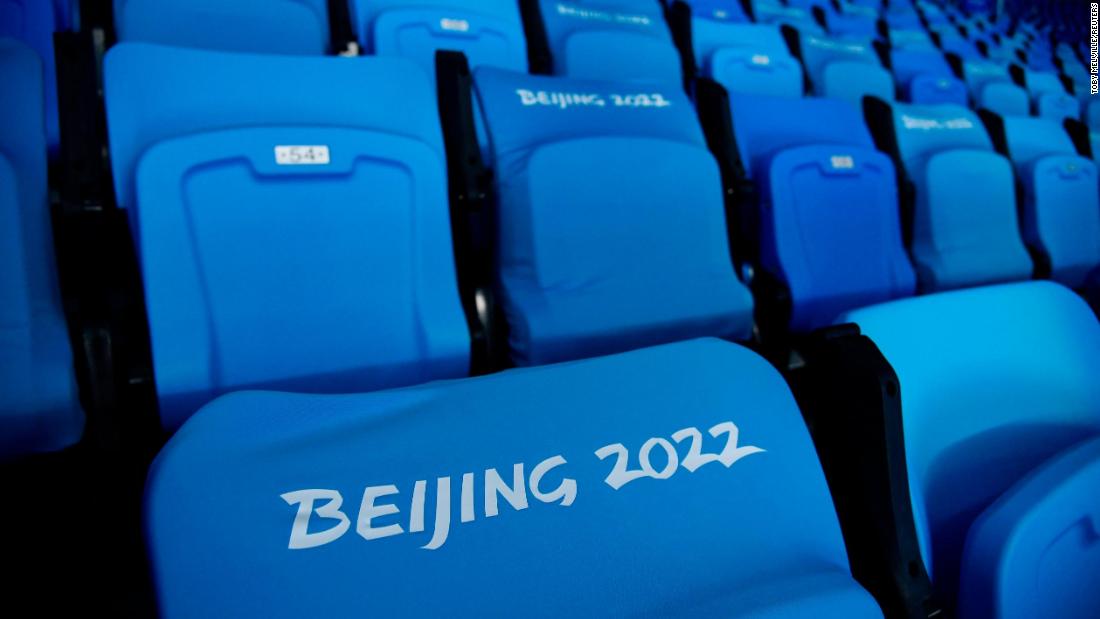Trimetazidine: Drug banned by WADA makes ‘your heart work more efficiently’
Multiple sources have told CNN Sports Analyst Christine Brennan that the athlete from the figure skating team event on the Russian Olympic Committee (ROC) who tested positive for a prohibited substance is a minor.
The International Olympic Committee (IOC) has not mentioned any athletes in connection with the case.
On Thursday, Russian Foreign Ministry spokesperson Maria Zakharova posted a video on Twitter expressing her support for Valieva.
What is trimetazidine?
According to the European Union’s medicines agency (EMA), trimetazidine “is a medicine used to prevent angina attacks, which are sudden pains to the chest, jaw and back brought on by physical effort, due to reduced blood flow to the heart.”
It is listed in the World Anti-Doping Agency’s (WADA) 2021 prohibited substances under the category of “hormone and metabolic modulators,” a class of drugs that have been banned by WADA due to evidence of athletes using them for performance enhancement.
“This is an interesting choice to be used in this way because I think a lot of times, people might think: to enhance your performance, you’d use a stimulant or something that would increase your heart rate or get your metabolism going,” Dr. Elizabeth Murray, paediatric emergency medicine physician at the University of Rochester Medical Center, told CNN’s Early Start program on Thursday.
“But what this drug does is actually make your heart work more efficiently. It doesn’t change your blood pressure very much or change your heart rate.
“An athlete wouldn’t get jittery or necessarily feel all that different, but they would theoretically be able to perform at a higher level for longer. It would increase their endurance, potentially.”
According to Dr. Murray, trimetazidine would not normally be given to children “unless there’s a very good reason.”
What happens next?
IOC spokesman Mark Adams said on Thursday that he wouldn’t comment on “speculation” over the case and couldn’t confirm whether the medal ceremony would go ahead.
“At the moment, it’s speculation … We have to wait with patience for this case to find its way to some kind of conclusion,” said Adams.
As laid out by the IOC Anti-Doping rules for Beijing 2022, this case — as with all doping cases which occur during the Games — will be handled and announced by the International Testing Agency (ITA).
At the moment, the ITA is investigating whether to issue a “provisional suspension,” which temporarily bans an athlete from competing until the outcome is determined.
As part of this process, the athlete in question will at some point be granted a provisional hearing, during which the ITA will announce whether the provisional suspension will be imposed.
The athlete and their team, in this case the ROC, can then challenge the decision at the Court of Arbitration for Sport (CAS).
CAS has a temporary office set up in Beijing to handle urgent matters such as this, with a special panel of judges called the “CAS Anti-Doping Division” that rule on doping cases.
What has Russia said?
On a conference call with journalists on Friday, Kremlin spokesperson Dmitry Peskov advised reporters to obtain information from the IOC directly.
He added: “It was not at the Olympics that the scandal erupted yesterday, but around the Olympics. It flared up among those who did not have verified information.
“As usual, not knowing the details, everyone began to yell far and wide. We will not join this orderly row of yellers. The only primary source of information should be the IOC.”
CNN has contacted the Russian Anti-Doping Agency, the Russian Figure Skating Federation and CAS for comment.
In a statement sent to CNN, the ITA said it is “aware of the various reports following the postponed medal ceremony for the figure skating team event at the Olympic Winter Games Beijing 2022.
“Any announcement connected to these events would always be publicly issued on the ITA’s website and not commented on otherwise. No such announcement has been published to date.”
Russian athletes are unable to compete in the Olympics under their country’s name due to sanctions from the IOC and WADA as a result of the country’s “systemic manipulation” of anti-doping rules during the 2014 Sochi Games.
In February 2021, the IOC announced Russian athletes would compete as neutrals under the ROC acronym at the Tokyo 2020 and Beijing 2022 Olympics.
CNN’s Rebecca Wright, Helen Regan, Nathan Hodge, Aleks Klosok, Anna Chernova, Christine Romans and Laura Jarrett contributed to reporting.
For all the latest Sports News Click Here

